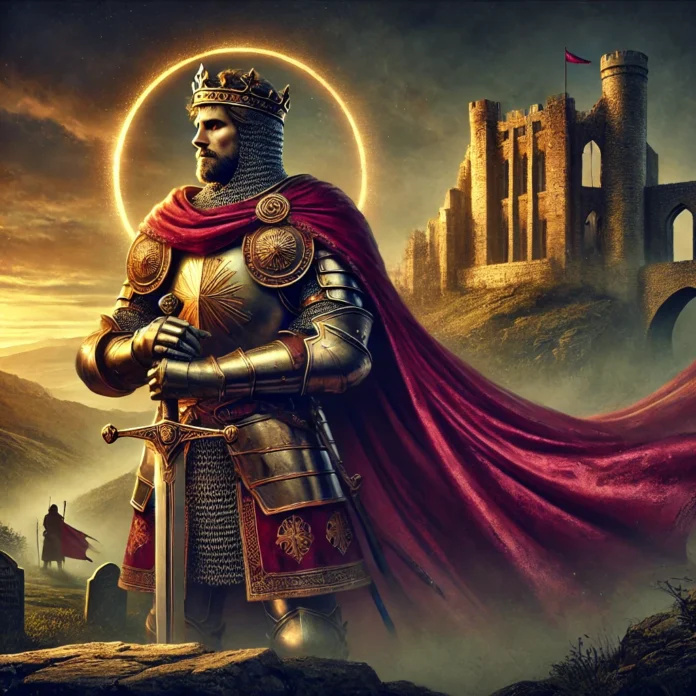King Arthur:

Introduction:
King Arthur is one of the most famous and beloved figures in Western mythology. His tales of bravery, valor, and the legendary Knights of the Round Table have captivated audiences for centuries. But who was King Arthur really? Did he exist, or is he purely a product of myth and legend? By delving into the sordid history of the Dark Ages and exploring the lives of two historical figures, Ambrose of Orleans and King Alfred the Great, we can uncover the possible inspirations behind the legendary King Arthur.


1. Origins of King Arthur:
The first mention of Arthur dates back to around 1,200 years ago in the Historia Brittonum, which refers to an Arthur who was involved in battles between the Britons and the Anglo-Saxons. However, this document was written centuries after the events it describes, leaving Arthur’s existence shrouded in mystery.
It was not until the 12th century, with the works of Geoffrey of Monmouth, that the Arthurian legend began to take shape. Over the years, with important contributions from French writers during the Middle Ages, the stories of Arthur and Camelot developed.
2. Did King Arthur really exist?
The question of the existence of King Arthur is unanswered. While many historians believe he is a fictional character, others believe that the legend may have been inspired by real historical figures. Let’s explore two possible candidates: Ambrose Aurelianus and King Alfred the Great.
3. Who was Ambrosius Aurelianus?
A leader in the war against the Saxons:
Ambrosius Aurelianus was a Romano-British leader who lived in the late 5th and early 6th centuries. According to Gildas the Wise, a 6th-century monk, Ambrose belonged to a noble family and played a key role in resisting the Saxons, one of the Germanic tribes that invaded Britain after the fall of the Roman Empire.
Figure of Faith and Valor:
Gildas mentions that Ambrose fought the Saxons with “God’s help”, suggesting that he was a Christian. However, this may reflect Gildas’s religious perspective rather than Ambrose’s beliefs. Ambrose’s victories, including his possible involvement in the Battle of Badon, cemented his reputation as a hero of his time.
Ambrose and Arthurian Legend:
Some historians believe that Ambrose Aurelianus influenced the Arthurian legend, possibly serving as an inspiration for Arthur’s uncle, Uther Pendragon, or even the wizard Merlin in the literary tradition.
4. Who was King Alfred the Great?
The King Who Defended England from the Vikings:
King Alfred the Great ruled Wessex from 871 to 899 AD and is celebrated for his victories against the Vikings. Although not expected to become king due to his poor health and being the youngest of six siblings, Alfred came to power after the deaths of his brothers.
Rebuilding the Nation:
Alfred’s reign was marked by reforms in military defense, law, and education. He established fortified towns (barhs) to protect against Viking attacks, wrote a comprehensive law code, and prioritized education by translating important works into English.
Alfred’s Influence on Arthurian Legend:
Like King Arthur, Alfred was a leader who fought against foreign invaders and sought to improve the lives of his people. His dedication to justice and education echoes the values associated with Arthur, making him a possible inspiration for this legendary figure.
5. King Arthur: Myth or History?
The legends of King Arthur, from Camelot to the Knights of the Round Table, have been retold in countless books, films, and TV shows. While there is no definitive proof that Arthur ever existed, figures such as Ambrose of Aurelian and King Alfred the Great embody the qualities of bravery, leadership, and chivalry that define the Arthurian legend.
for more link;https://jokesstory.com/a-foodie-joke-story/






 انسان کی سب سے بڑی خواہش سکون ہوتی ہے
انسان کی سب سے بڑی خواہش سکون ہوتی ہے













